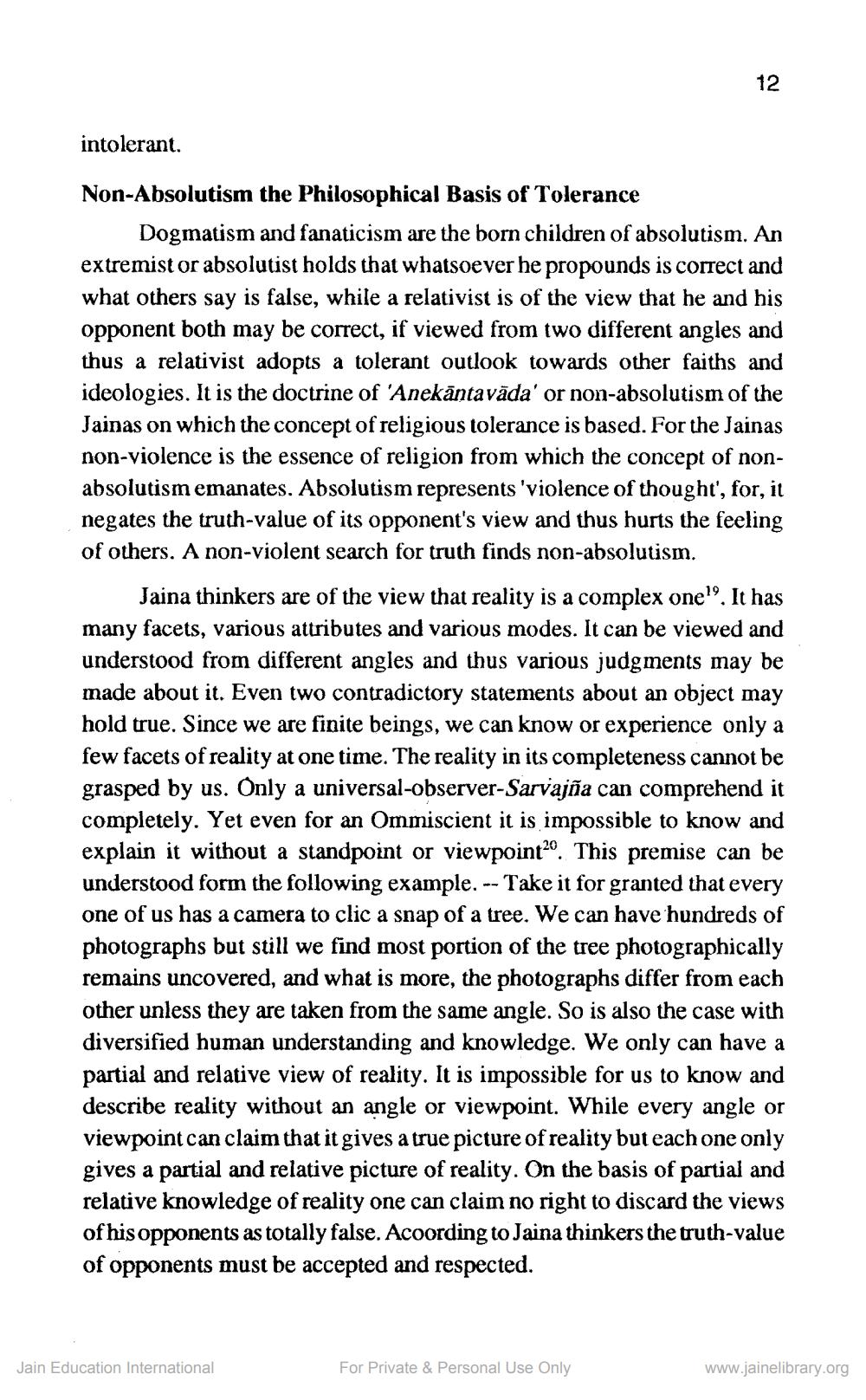________________
intolerant.
Non-Absolutism the Philosophical Basis of Tolerance
Dogmatism and fanaticism are the born children of absolutism. An extremist or absolutist holds that whatsoever he propounds is correct and what others say is false, while a relativist is of the view that he and his opponent both may be correct, if viewed from two different angles and thus a relativist adopts a tolerant outlook towards other faiths and ideologies. It is the doctrine of 'Anekāntavāda' or non-absolutism of the Jainas on which the concept of religious tolerance is based. For the Jainas non-violence is the essence of religion from which the concept of nonabsolutism emanates. Absolutism represents 'violence of thought', for, it negates the truth-value of its opponent's view and thus hurts the feeling of others. A non-violent search for truth finds non-absolutism.
Jaina thinkers are of the view that reality is a complex one". It has many facets, various attributes and various modes. It can be viewed and understood from different angles and thus various judgments may be made about it. Even two contradictory statements about an object may hold true. Since we are finite beings, we can know or experience only a few facets of reality at one time. The reality in its completeness cannot be grasped by us. Only a universal-observer-Sarvajña can comprehend it completely. Yet even for an Ommiscient it is impossible to know and explain it without a standpoint or viewpoint-o. This premise can be understood form the following example. -- Take it for granted that every one of us has a camera to clic a snap of a tree. We can have hundreds of photographs but still we find most portion of the tree photographically remains uncovered, and what is more, the photographs differ from each other unless they are taken from the same angle. So is also the case with diversified human understanding and knowledge. We only can have a partial and relative view of reality. It is impossible for us to know and describe reality without an angle or viewpoint. While every angle or viewpoint can claim that it gives a true picture of reality but each one only gives a partial and relative picture of reality. On the basis of partial and relative knowledge of reality one can claim no right to discard the views of his opponents as totally false. Acoording to Jaina thinkers the truth-value of opponents must be accepted and respected.
Jain Education International
For Private & Personal Use Only
www.jainelibrary.org




